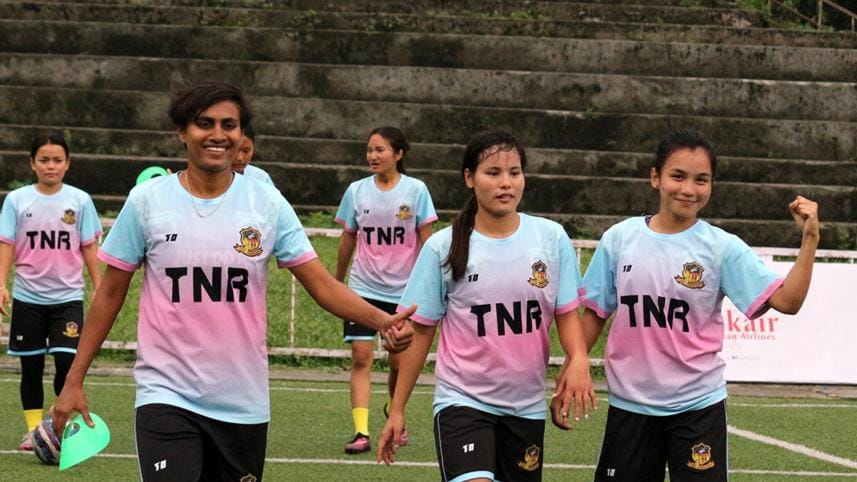Wasting a golden generation?

When Bangladesh clinched their second straight SAFF Women's Championship title in October 2024, it felt like a turning point -- a sign the team were ready to move beyond South Asian dominance and step onto a larger Asian stage.
Seven months later, that hope is dimming fast, giving way to uncertainty and increasing skepticism.
Calls to raise the bar -- to arrange matches against stronger second-tier Asian nations like Vietnam, Thailand, Iran, and the Philippines -- were loud and clear after the SAFF success. Yet little action followed. Infrastructure remains stagnant. Facilities haven't improved.
And more worryingly, even the existing resources are being mishandled.
The root of the current crisis is a deepening rift between head coach Peter Butler and a group of senior players. That fallout, which began with a training boycott in January, continues to overshadow preparations for the upcoming fixtures in Myanmar, Bahrain and Turkmenistan in AFC Women's Asian Cup qualifiers in June and July.
Despite Bangladesh Football Federation's (BFF) efforts at crisis management, the cracks are widening. Butler -- a former Premier League player with a respectable coaching record -- is back at the helm with eight of the boycotting players reintegrated.
Ten others, however, including national stalwarts like Sabina Khatun, Maria Manda, Monica Chakma, are currently playing in Bhutan's Women's League -- just when the national team needs unity the most.
Playing abroad offers valuable exposure, especially given the limited international opportunities at home. Still, it's hard to ignore the timing. Shouldn't preparing for a crucial international campaign take precedence?
The episode exposes deeper problems. Bangladesh women's football now stands at a crossroads -- between building on progress and watching it unravel. The decision to let core players drift away without resolving internal disputes signals a worrying lack of leadership and strategic thinking.
Coach Butler has described the current squad as the "future" of Bangladesh. And while the younger players do show promise, pushing aside seasoned internationals without a clear transition plan risks derailing the momentum built over the past decade.
Players like Maria, Monica, and Sabina have carried Bangladesh through its rise since 2014, facing elite youth sides from Japan, Korea, and Australia. Their experience is irreplaceable. Yet, instead of bridging the gap and restoring trust, the federation's inaction has only deepened the divide.
Seven months into the tenure of the Tabith Awal-led executive committee, women's football remains without a functioning domestic structure. Beyond short-term contracts for 54 players, there are no meaningful pathways, leaving the sport's foundation increasingly fragile.
Unless reconciliation happens -- unless Butler and the BFF work to reintegrate the veterans and unify the squad -- Bangladesh could head into the Asian qualifiers fractured, underprepared, and at risk of squandering hard-won momentum.
This is not just about picking sides. It's about safeguarding potential, preserving continuity, and respecting the journey that brought the team to this point.
Without belief, trust, and structure, even the brightest promise can collapse under its own weight.



 For all latest news, follow The Daily Star's Google News channel.
For all latest news, follow The Daily Star's Google News channel.
Comments